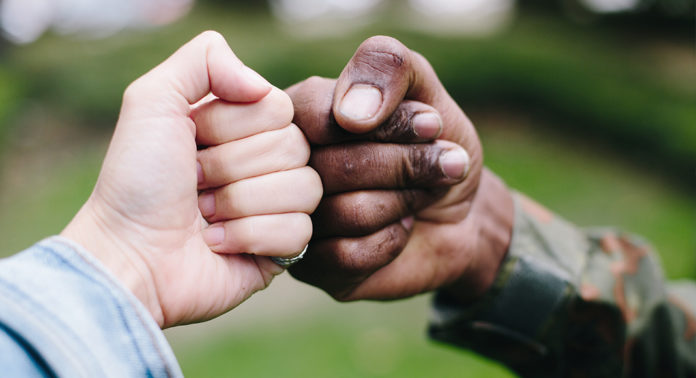Everywhere we look, we see memes about how 2020 will go down as the worst year ever. It’s true that 2020 has been challenging, but what if we look back on this year and remember it being far better than we are seeing it now? We have an opportunity to confront some ugly things in our society and, yes, even within ourselves. Those ugly things I’m talking about are prejudice and racism.
Even mentioning those words makes people nervous or upset. But they are incredibly important words to understand. The National Association of School Psychologists defines racism as “discrimination against individuals or groups based on beliefs about one’s own racial superiority.” Prejudice, on the other hand, is defined as “irrational or unjustifiable negative emotions or evaluations toward persons from other social groups.”
I may not be 100 percent right, but based on those definitions, it is my belief that most people are not racist—at least not knowingly. However, might I present to you that we all have prejudice? Both are wrong and both come from heart issues. If racism is the fruit, then our hearts are the root. It’s up to all of us to analyze, examine, and test our hearts. Today, I’d like to offer three things that we can do to combat these issues within ourselves.
Listen To
“My dear brothers and sisters, take note of this: Everyone should be quick to listen, slow to speak…” James 1:19 NIV
Over the last few months I’ve heard stories from lifelong friends that I had never heard before. Friends who played basketball with me in college have asked me if I’ve ever had someone pull their purse close to them or lock their car door when I walked by. My black friends had experiences I never knew about or had to endure simply because of the difference of our skin color. Hearing these stories has been extremely difficult, but exceedingly important for me to hear in order to gain perspective.
Learn From
“Let the wise listen and add to their learning, and let the discerning get guidance.” Proverbs 1:5 NIV
Once I have listened to, in order to gain perspective, I can then learn from. To be a learner, we must acknowledge that we do not know everything. Sometimes, we do not know what we do not know. We all have blind spots. In your car, before changing lanes you glance in your mirror to see if traffic is clear. But because of the blind spot, you still need to lean forward and look over your shoulder to be sure. Sometimes you have to move from your position in order to see a blind spot in your life. This is what happens when we listen to and learn from.
I love the way Gateway Church illustrated this in a sermon. They held up a bottle of water in front of the congregation and asked what they see. Several people shouted out the brand of the water bottle visible on the label. But he said, “No, that’s not what it says.” On his side of the bottle, he could only see the nutritional facts. He must walk around to the front of the bottle to see it the way the congregation sees it. Both the congregation and the pastor were looking at the same thing, but their viewpoints were from different perspectives.
Lament With
“If one part suffers, every part suffers with it; if one part is honored, every part rejoices with it.” 1 Corinthians 12:26
Once you listen to and learn from, you can begin to empathize with them. In other words, once you understand the perspectives and feel the pain of others, you can lament with them. 1 Corinthians 12:21-27 says that we are all part of the same body and when “one part suffers, every part suffers with it.”
Have you ever woken up in the middle of the night and stubbed your toe in the dark? The rest of your body wouldn’t say to your toe, “get over it,” or “it’s not really that bad,” or “hey, what about us? We’re important too!” And while every single part of that body matters, at that very moment the entire body is aware of the fact that the toe is hurting. Right now, our black community is hurting, and we must hurt with them because we are all part of one body in Christ. If we can take the time to listen to, then learn from, we can then lament with.
It seems as though our news cycle has left the topic of racism and come back to the click-bate topic of COVID-19. I write this now in an effort to keep the conversation going. To not let it die and be forgotten. I’m reminded of the words of my friend Pastor Tim Ross who uses the analogy of chocolate milk to illustrate this point. He argues that you cannot just put chocolate syrup in milk and get chocolate milk. You have to stir it up! We must keep the conversation alive and continue to stir, agitate, and cultivate this topic to ensure steps continue to happen within the body of Christ.
I want to encourage you that 2020 presents an opportunity to bring unity into the Church and the world. Let the conversation continue even when the stories and the headlines on the news stop. Let’s turn this year into one of the best years in history.

